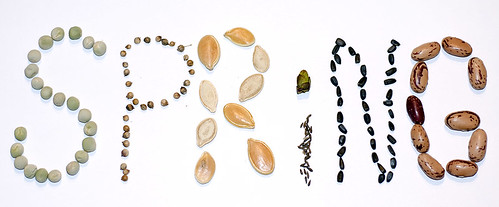Why I’m planting high-tech in my garden
The early spring planting season is upon us in Colorado, and I’ve been picking out seeds and starting plants for the ever expanding container garden and community garden plot. I’ve been learning a lot each growing season, and the major lesson that I learned last year: Plant hybrids. Lots of them.
Judging from the Burpee Catalog, garden stores, and plant centers which I visited this year, it seems most garden plants and seeds can be separated into four broad categories: Heirlooms, Organics, Hybrids and Unknowns. Heirloom plants are “older” genetic varieties, usually plants or seeds grown before industrial agriculture. Organic seeds are simply certified by government agencies to be the product of plants that are grown organically.
Organics and heirlooms have been growing in popularity in the last few years. When I started my garden, I devoted myself to cultivating only heirloom plants, if I could, and grew them with classic organic gardening techniques. The typical arguments for these older varieties include keeping genetic diversity alive, that the older types of produce taste better than newer varieties, and that heirloom plants have adapted over time to be resistant to local pests, diseases, and weather extremes.
Last summer, I learned that these arguments are, mostly, not applicable in Colorado. Let’s take, for instance, my problems with heirloom tomatoes. The first major issue is that there are no real heirloom varieties of tomatoes in Colorado. Colorado is not a friendly climate in which to grow tomatoes, and, as far as I’ve found, no tomato was traditionally grown in Colorado before industrialized agriculture. While we do get a lot of sun on the Front Range, our soils are sandy, our weather is very dry, our insects are ravenous, and our nights are cold.
For two summers I have devoted myself to coaxing heirloom tomatoes to life in my garden, and I have managed to over- and under-water them constantly, had them eaten whole by huge grasshoppers and little flea beetles, and watched the tomatoes sit green on the vines for the entire (short) growing season.
Yes, it’s frustrating. And for what? To keep genetic diversity? If my tomatoes never ripen, I’m not getting any new seeds to move on to the next generation. Because they taste better? Actually, the new garden hybrids I tried last summer tasted much better than the heirlooms. Because they’re better at resisting local pests? Not at all. In the end, I can’t justify the time, expense, energy and effort required to get a few heirloom tomatoes (or beans, or melons) off of fragile, dying plants, when I could get so much more food, and tastier food, from the new hybrid plant varieties.
So, this summer I’m avoiding any plant or seed labeled as “heirloom,” and that’s a hard and fast rule. Instead, I’ve invested in seeds and plants engineered for the lazy gardener in a harsh climate. These hybrids have been engineered to be very hardy, much higher producing (more veggies per plant), and very tasty in the garden. I’m buying piles of seeds to grow plants that are resistant to heat and cold, resistant to over- and under- watering, and producing tons of extremely good food. Because life is hard for plants in my mountain garden, and if I want tasty eats, I have to go high-tech.
What do you think? Are you devoted to heirlooms in your garden, or feel they have been over-hyped? Do you think engineering plants for a lazy gardener is a good idea or dangerous? Do fast-growing beans and seedless tomatoes make you excited about the newest developments in garden genetics or scare the begeebies out of you?



3 Comments